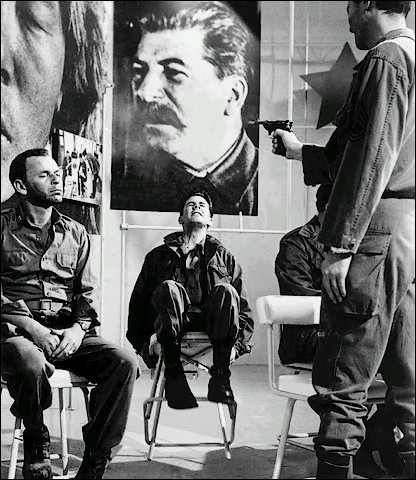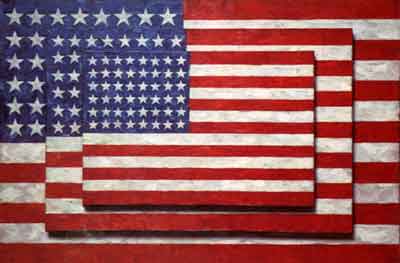
This is a sad story. I hadn't planned to blog it, but I was inspired by some
pet-blegging by Blckdgrd, and I promised him somewhere in one of his comments that I can't locate right now because it's raining and when it rains my internet connection slows to a crawl I'd tell it.
Last week, we let our dog, Jake, out to his dog run as we have done every day for the last eight years or so so we could run a few errands. We checked, as ever, to make sure the gates were latched and he had plenty of fresh water.
An hour-and-a-half later, when we returned, he was gone. Vanished. The gates were still latched. Nothing was disturbed. There was a general freak out at the Wisdomicile.
Let me back up and fill in some information. Jake—if I do so say myself—is the greatest dog in the world. Above is a picture I took of him this Spring at the beach. He is, as you can plainly see, a German Shepherd: a dog's dog. He may not be the smartest or fastest or most loyal or most agile or sweetest (or whatever criteria you use) dog in the world, but he's in the top five or ten in every category. He is fierce in defending his territory, but has never bitten anyone. And around kids he's a pussycat. Any kid can come up to him and stick her hand in his mouth to take his beloved soccer ball away or pull his ears or tail or whatever, and he'll surrender. But if a strange adult tries to approach any of the kids who constantly like to play in our yard with him, he'll position himself between the kids and the adult and not let the adult near until we tell him it's okay. His herding instinct kicks in. He sleeps in my bedroom every night, and right now he's sitting right beside my desk chair. He's been a beloved family member for over eight years. For the record, we have two dogs, one cool cat, and two fat guinea pigs.
And he just disappeared. We couldn't understand how it could've happened. There were no signs of a struggle or commotion. Just an empty dog run, which has about the same area as the footprint of my house. It's Jake's room.
We immediately headed out to the woods behind my house. We live in Atlanta, but there's a green space across the Peachtree Creek which runs through my backyard. It has hiking and biking trails. We figured he was over there playing with some other dogs or chasing rabbits or whatever. We sometimes let him run out there when we're working in the yard, but he always comes back every five to ten minutes to check on us. We hiked around for an hour or two (in several directions) calling after him but couldn't find him. We went to the parks nearby and cruised up and down the streets of our neighborhood. No Jake. No dog's body.
I went to several of the other parks that border on the green space to no avail. Wisdaughter called as it was getting dark and said she had seen a dog that looked a lot like Jake in one of the parks I'd already been to, but the little girls he was with showed her the dog's tag ("Delgado") which had their address on it. Our hopes were crushed.
There were tears. And bafflement. Secretly, I was worried some burglars had nabbed him so they could hit our house later without having to worry about dealing with a watch/guard dog. But I couldn't figure how they'd managed to get him out of HIS yard. Or else, he'd somehow gotten out and been killed by a coyote. But this could not have gone down without a real commotion. This was Sunday.
Monday, I went to all the Vets in a ten-mile radius, called the animal shelters and Humane Society (the County Pound was closed 'til Tuesday), and hiked the woods behind my house for hours. Wisdaughter & I posted to
www.lostandpound.com. I searched the skies for buzzards. Still, no Jake. Wisdoc checked in from work every hour practically in tears. Wisdaughter and Wesdom made up signs and fliers. Nothing.
Tuesday morning, we went to the Pound. It was a sobering and miserable experience. The officers there were terrific—sympathetic and helpful. Yet, no Jake. (I was astounded to discover that the vast majority of dogs in the Pound were Pitbull or Pitbull mixes.) I put up fliers at all the Vet's offices, grocery stores, restaurants, laundromats, etc. in the neighborhoods around the greenspace. Wesdom and I spent a long afternoon putting up posters in all the parks where people walk their dogs, becoming increasingly desperate.
That evening, just as I was walking in the door exhausted from my searching, the phone rang. A woman with a pleasant voice told me she'd just seen my poster. "I think we have your dog," she said. For the first time in all this, I became emotional. I wanted to know where she'd found him, if he was okay, everything. Her daughter, she said, had found him wandering on the trails that wound through the woods behind my house and connected up with her house, about a half mile away. Her daughter told her he wasn't wearing a collar when she found him, but, she said "My daughter lies." She said the dog was on her back porch and I could go over and pick him up. She was out to dinner and wouldn't be back until late. I thanked her profusely and told her I would like to meet her and thank her. She declined. Odd.
I went over to the house, and, sure enough, there he was. He looked a bit shell-shocked and dehydrated, but it was definitely Jake—wearing a new collar and a tag that read "Delgado". Unfreakingbelievable. The girl, an 11 year old, had put a new tag and collar on him and lied to the Wisdaughter's face. The picture was getting clearer. She had to have sneaked up into my yard, opened Jake's gate, led him out through the woods, thrown away his collar, had a new tag made, and put a new collar on him within a couple hours after having nabbed him. Yet, it was the only plausible explanation. No adult male could have come into the yard and taken him. No coyote could have dragged him over the fence and out of the yard. ONLY a little girl could have lured Jake out of his yard without creating a ruckus.
Now, I said at the first that this was a sad story. This is where it really gets sad. We got Jake back, and he's fine now. That's not the sad part.
The next afternoon, as I was working, Wesdom called me to come downstairs. "Someone wants to see you." I went to the front door, and there I saw three of the cutest little girls you'd ever want to meet—two blondes, 9 and 13, and one brunette, 11. "Yes?" I said. "Well," said the brunette, "your sign said you had a reward for getting your dog back and you have your dog. What's my reward?"
I felt like Billy Budd. I was so exasperated (flabbergasted) I couldn't speak. I wanted to throttle that child right there on my front doorstep. But, natch, I didn't. I sat down on the stoop and, after composing myself, told them I wanted to find out what happened first. The brunette, clearly the master-mind here, told some cock-and-bull story about finding Jake sans collar on the trails in the woods and him following them home.
"Let me tell you something about Jakie," I said. I told them about how he is more like a member of our family and how we've had him for over eight years and how devastated we all were that he had gone missing and how glad we were that their mother had called. Then I explained that in all the eight years we'd had Jake, he'd never gotten out of his yard. Not once. And I marveled at how his gates had been latched when we let him out and when we'd gotten back. And it was amazing that his collar had come off because in all his eight years of playing in the woods his collar and tags had never come off. What's more, I couldn't understand why he didn't come back because he really knew all those trails in the woods—where we walk him all the time—and he knows his way home. The girls were amazed too.
"But," I said, "setting all that aside, you know what really gets me? [Wisdaughter] saw you in the park on Sunday with Jake. And she asked you about him. And you said he was your dog and you showed her a collar with your address on it and the name 'Delgado'." At this point, they knew the jig was up.
The 9- and the 13-year old were mortified, abashed, ashamed, etc. Age-appropriately guilty. The 11-year old, on the other hand, seemed to be more upset about being caught in a lie. She tried to lie her way out of it, but I stopped her. "Let me tell you something, stealing a dog like Jake is a crime. Do you know what a crime is? I would be within my rights to call the police, and they could take you to jail. Do you want me to do that?" Of course, none of them did. "Tell you what, if you admit what you did, tell me exactly what happened, I'll consider not calling the police."
The two blonds begged the brunette to confess. Which she did, haltingly. She really appeared to have no conscience. She couldn't say why she did it. She wouldn't admit whether she'd had the tag made up before or after she took Jake. She knew, though, she'd made a mistake in lying to my daughter, but she wouldn't say why she'd done it.
This, to me, is the sad part. There was a level of sociopathy in her I found difficult to gauge or, frankly, understand. I looked at her and felt like I saw a terrible future for her. A sad future. She is an incipient thief and a liar. And she had the audacity, after taking Jake, to come and demand a reward for her mother's having returned him. I told Wisdoc that, really, she really only got the sequence wrong from being a full-fledged kidnapper and extortionist: you kidnap first, demand a reward, and then return the dog. You don't return the dog and then seek a reward.
Here's my quandary: should I report the incident to the police? Most of my friends and family feel I should. There are good reasons either way. Reporting the incident (and, say, not pressing charges) could serve as a reality check for this budding criminal. It could potentially help the parents in disciplining what sounds to me like a difficult child ("My daughter lies"—Can you imagine the embarrassment she must have felt in saying this? She didn't even want to face me.) Not reporting the incident (and, say, sending the parents a narrative of the actual events) might ensure that the parents know the truth. It would reward the mother for calling so promptly in response to my poster—imagine if I got the police involved how she would feel the next time her daughter pulled a stunt like this; she just might not do it.
But since I don't know the family, I'm also worried about a potential abuse situation for the child if the parents find out the truth. My main concern now that I have Jake back is for the child's future. It's a community thing. Hey, I suspect there were a few times somewhere in my youth or childhood when I was glad no one reported me to the police for one thing or another. And I grew up pretty much okay. To err, as they say, is human...
I'll just have to work this out.
 .
.









